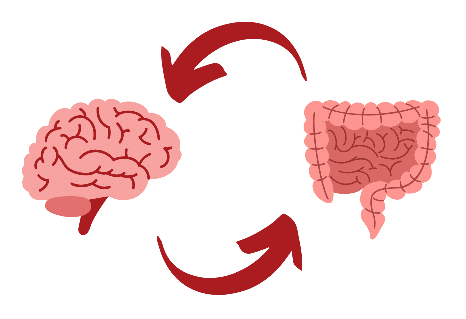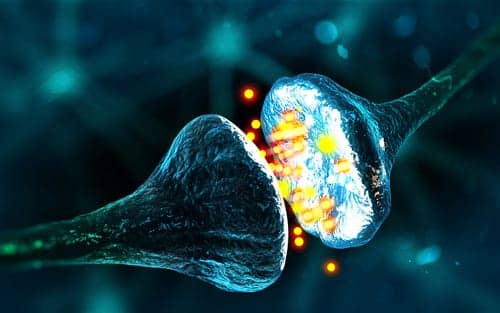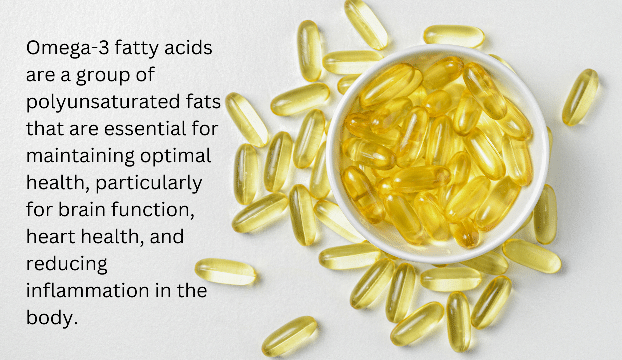We’ve all heard the phrase, “You are what you eat” but have you ever stopped to think about how your food choices affect more than just your physical body? While it’s well known that a healthy diet can lower the risk of chronic diseases such as heart disease, diabetes, and obesity, what is often overlooked is how food influences our mental health. The brain, just like any other organ, needs the right fuel to function properly. By understanding the connection between food and mood, we can make informed dietary choices that support not only our body but also our emotional well-being.
In this post, we will explore the science behind how food impacts mood, discuss specific nutrients and their role in brain health, and offer practical tips for incorporating mood-boosting foods into your diet.
The Gut-Brain Connection: More Than Just a Feeling

Recent research has revealed that the relationship between the gut and the brain is a complex, two-way street. This is known as the gut-brain axis. Our digestive system is home to trillions of bacteria, collectively known as the gut microbiome, which plays a key role in mental health. These bacteria produce neurotransmitters like serotonin, often called the “feel-good” hormone. In fact, about 90% of the body’s serotonin is produced in the gut, not the brain.
When your gut microbiome is out of balance due to poor dietary choices or stress, it can lead to an increase in inflammation and a decrease in the production of these vital neurotransmitters. This can affect your mental health, contributing to feelings of anxiety, depression, and fatigue.
How Food Influences Neurotransmitters

Neurotransmitters are the chemicals responsible for transmitting signals between nerve cells in the brain. They play a crucial role in regulating mood, concentration, and emotional response. The three key neurotransmitters related to mental health are serotonin, dopamine, and norepinephrine.
- Serotonin: Affects mood, sleep, and appetite. Low levels are linked to depression and anxiety.
- Dopamine: Known as the “reward” neurotransmitter, it is associated with pleasure and motivation. Low levels are linked to lethargy and a lack of motivation.
- Norepinephrine: Helps regulate stress and arousal. Imbalances can lead to mood swings, anxiety, and stress-related disorders.
What’s fascinating is that the nutrients in our food play a direct role in the production and function of these neurotransmitters. For example, serotonin is synthesized from an amino acid called tryptophan, which is found in protein-rich foods like turkey, eggs, and nuts. Similarly, tyrosine, an amino acid found in foods like cheese, bananas, and almonds, is used to produce dopamine.
Nutrients That Boost Mental Health
-
Omega-3 Fatty Acids

Omega-3s are essential fatty acids that are particularly abundant in fish like salmon, sardines, and mackerel. They are a major building block of brain tissue and play a critical role in reducing inflammation. Studies have shown that people who consume diets high in omega-3s have a lower risk of depression and anxiety. These healthy fats are also associated with improved memory and cognitive function.
-
B Vitamins (Folate, B6, B12)
B vitamins, particularly folate (B9), B6, and B12, are vital for brain health. They help regulate neurotransmitter function and reduce the risk of mood disorders. Foods rich in B vitamins include leafy greens, legumes, eggs, and whole grains. Folate, in particular, is associated with the production of serotonin and dopamine, and deficiencies in B vitamins have been linked to an increased risk of depression.
adsense -
Antioxidants (Vitamin C, Vitamin E)
Free radicals in the body can cause oxidative stress, which damages cells, including those in the brain. Antioxidants help protect the brain from this damage and are found in a variety of fruits and vegetables, such as berries, oranges, spinach, and nuts. Vitamin C and Vitamin E are especially potent antioxidants that support brain health and mood regulation.
-
Magnesium
Magnesium is often called the “relaxation mineral” because of its calming effects on the body and mind. It is involved in the regulation of the body’s stress response and helps produce GABA, a neurotransmitter that promotes relaxation. Low levels of magnesium are associated with anxiety, depression, and insomnia. Foods rich in magnesium include dark chocolate, avocados, nuts, and leafy greens.
-
Probiotics
As mentioned earlier, the gut microbiome plays a critical role in mental health, and probiotics are beneficial bacteria that help maintain gut health. Fermented foods like yogurt, kimchi, kefir, sauerkraut, and kombucha are rich in probiotics. Including these in your diet can help balance the gut-brain axis, improve digestion, and boost your mood.
Foods to Avoid for Mental Well-Being
Just as there are foods that promote mental wellness, there are also foods that can negatively affect your mood. Refined sugars and processed foods are two major culprits. These foods cause blood sugar levels to spike and crash, leading to mood swings, irritability, and fatigue.
High sugar intake has been linked to increased rates of depression and anxiety, as it disrupts the balance of neurotransmitters. Additionally, diets high in trans fats and processed oils have been shown to increase inflammation, which negatively impacts brain health.
Reducing your intake of processed foods and opting for whole, nutrient-dense alternatives can significantly improve your mental health.
Practical Tips for Incorporating Mood-Boosting Foods
-
Start with Breakfast
A nutrient-rich breakfast can set the tone for the day. Opt for whole grains, like oats or whole-grain toast, along with a source of protein, such as eggs or yogurt. Add some berries or nuts for an antioxidant and omega-3 boost. - Snack Smart
Instead of reaching for chips or candy, opt for brain-healthy snacks like a handful of almonds, a banana, or some dark chocolate. These snacks provide essential nutrients like magnesium and antioxidants. - Eat the Rainbow
Including a variety of colorful fruits and vegetables in your diet ensures you get a broad spectrum of antioxidants and vitamins that support brain health. -
Incorporate Fish Twice a Week
Try to include fatty fish like salmon or mackerel in your meals at least twice a week to get a healthy dose of omega-3s. If you’re not a fan of fish, consider omega-3 supplements derived from algae.
Conclusion
The connection between food and mood is undeniable. By nourishing your brain with the right nutrients, you can help improve your mental clarity, reduce feelings of anxiety and depression, and boost your overall emotional well-being. Making small, intentional changes to your diet can have a profound impact on both your mind and body. Remember, mental health is just as important as physical health, and what you eat plays a crucial role in both.
Also Read: Best Anti-aging Foods You Should Be Eating
So, next time you feel stressed or anxious, consider reaching for a handful of nuts, a piece of dark chocolate, or a bowl of fresh berries – your brain will thank you!



